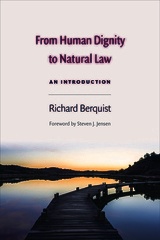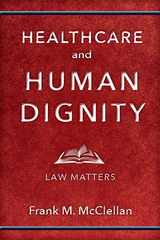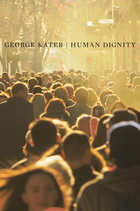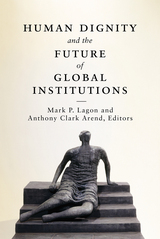



We often speak of the dignity owed to a person. And dignity is a word that regularly appears in political speeches. Charters are promulgated in its name, and appeals to it are made when people all over the world struggle to achieve their rights. But what exactly is dignity? When one person physically assaults another, we feel the wrong demands immediate condemnation and legal sanction. Whereas when one person humiliates or thoughtlessly makes use of another, we recognize the wrong and hope for a remedy, but the social response is less clear. The injury itself may be hard to quantify.
Given our concern with human dignity, it is odd that it has received comparatively little scrutiny. Here, George Kateb asks what human dignity is and why it matters for the claim to rights. He proposes that dignity is an “existential” value that pertains to the identity of a person as a human being. To injure or even to try to efface someone’s dignity is to treat that person as not human or less than human—as a thing or instrument or subhuman creature. Kateb does not limit the notion of dignity to individuals but extends it to the human species. The dignity of the human species rests on our uniqueness among all other species. In the book’s concluding section, he argues that despite the ravages we have inflicted on it, nature would be worse off without humanity. The supremely fitting task of humanity can be seen as a “stewardship” of nature. This secular defense of human dignity—the first book-length attempt of its kind—crowns the career of a distinguished political thinker.

What does human dignity mean and what role should it play in guiding the mission of international institutions? In recent decades, global institutions have proliferated—from intergovernmental organizations to hybrid partnerships. The specific missions of these institutions are varied, but is there a common animating principle to inform their goals? Presented as an integrated, thematic analysis that transcends individual contributions, Human Dignity and the Future of Global Institutions argues that the concept of human dignity can serve as this principle.
Human dignity consists of the agency of individuals to apply their gifts to thrive, and requires social recognition of each person's inherent value and claim to equal access to opportunity. Contributors examine how traditional and emerging institutions are already advancing human dignity, and then identify strategies to make human dignity more central to the work of global institutions. They explore traditional state-created entities, as well as emergent, hybrid institutions and faith-based organizations. Concluding with a final section that lays out a path for a cross-cultural dialogue on human dignity, the book offers a framework to successfully achieve the transformation of global politics into service of the individual.
READERS
Browse our collection.
PUBLISHERS
See BiblioVault's publisher services.
STUDENT SERVICES
Files for college accessibility offices.
UChicago Accessibility Resources
home | accessibility | search | about | contact us
BiblioVault ® 2001 - 2024
The University of Chicago Press









